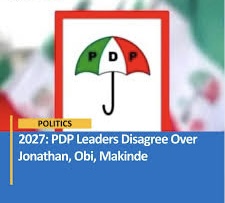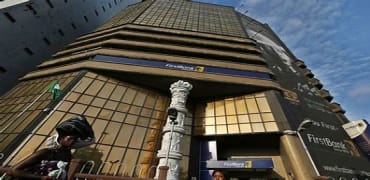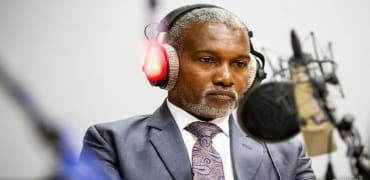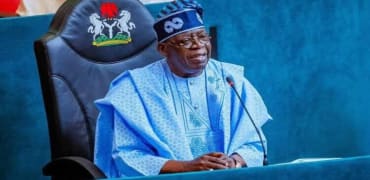2027: Jonathan, Obi, Makinde Set for PDP Showdown as Party Zoning Tilts to the South
2027: Jonathan, Obi, Makinde Set for PDP Showdown as Party Zoning Tilts to the South
The race for the 2027 presidential ticket of the Peoples Democratic Party (PDP) has entered a defining phase after the party’s National Executive Committee (NEC) announced the zoning of the ticket to the South. The decision, reached at the NEC’s 102nd meeting in Abuja, may have ended months of suspense, but it has opened a floodgate of political maneuvering that promises to shape Nigeria’s opposition politics in the next two years.
Also confirmed at the meeting was Umar Damagum as substantive national chairman, a move party officials described as part of a “corrective step to restore fairness” and consolidate unity.
Debo Ologunagba, the PDP’s national publicity secretary, framed the zoning decision as both pragmatic and redemptive. “It is about equity and balance,” he said. “We do not want a repeat of 2023 when the party fractured because we ignored zoning. This is to assure Nigerians that the PDP remains a party of justice. It’s a way forward.”
Already, three figures dominate discussions within party circles — Goodluck Jonathan, Seyi Makinde, and Peter Obi. Their names reflect not just ambition but also contrasting visions of what the PDP can offer in 2027.
The Jonathan Factor: A Return or a Mirage?
The mere mention of former President Goodluck Jonathan’s name has electrified conversations. Nearly a decade after his dramatic exit in 2015, Jonathan retains a unique blend of nostalgia, sympathy, and pan-Nigerian appeal. For many PDP stalwarts, his candidacy represents a tested hand who could unify the party’s fractious tendencies.
Behind the scenes, some northern leaders reportedly see Jonathan as a bridge figure, a southerner acceptable across divides, and a symbol of continuity with international respect. But his return is complicated by constitutional hurdles. Section 137(3) of the amended 1999 Constitution bars anyone sworn into the presidency twice from contesting again — a clause specifically inspired by his 2015 eligibility debate.
Whether Jonathan’s allies can test or circumvent that legal barrier remains a lingering question. Yet, the buzz around his name alone has unsettled southern aspirants and narrowed calculations in the South-South.
Makinde: The Rising Star
If Jonathan embodies continuity, Governor Seyi Makinde of Oyo State symbolizes generational change. At 57, Makinde is young by Nigeria’s political standards, pragmatic in governance, and increasingly viewed as a national player beyond the South-West.
Though he has not declared, his allies insist he is “eminently qualified” and have pointed to his political courage during PDP’s internal wrangles. Posters already emerging in parts of the country suggest that grassroots loyalists are preparing the ground ahead of any formal announcement.
For Makinde, the question is less about qualification and more about timing. Can he consolidate his influence within a PDP still dominated by older heavyweights? Or will he, like others before him, serve as the youthful face of ambition without the machinery to clinch the crown?
Obi: The Populist Wildcard
Then comes Peter Obi, former Anambra governor and 2023 Labour Party candidate, whose “Obidient Movement” remains the single biggest electoral upset in recent Nigerian history. His campaign electrified millions of young voters, reshaping Nigeria’s political map in a way no third-force candidate had ever done.
While Obi remains formally tied to Labour Party politics, his ties with PDP leaders have never fully broken. The zoning of the ticket to the South, analysts say, “reopens the PDP door” should Obi wish to re-enter. His challenge lies in whether he can reconcile with the same political establishment he once described as complicit in Nigeria’s governance failures.
Still, should he cross back, Obi brings with him the energy of a movement and the possibility of consolidating disillusioned young voters under the PDP’s more formidable structure.
The Fringe Names: Dickson, Mbah, and Others
Among those whispered in political circles is Seriake Dickson, former governor of Bayelsa State. But Dickson has dismissed the speculation as “unfounded rubbish,” insisting his eyes are on the Senate. His candid remarks — “Why should my name come up here? I have not told anybody I am interested” — underscored how Jonathan’s shadow has crowded out other South-South figures.
Another rising name is Governor Peter Mbah of Enugu State, whose energetic governance style has quickly elevated him onto the national stage. His allies tout him as the “Talk and Do” governor, citing his ambitious projects in education, healthcare, and infrastructure. While he has not declared, his growing profile makes him a potential dark horse should older aspirants falter.
PDP’s Gamble: A Test of Survival
For the PDP, zoning to the South is more than internal housekeeping — it is a gamble for survival. In 2023, the party nearly imploded after ignoring zoning traditions, a move that fueled defections and weakened its base.
This time, supporters argue, the PDP has reasserted its founding principle of inclusion. But critics see it differently. Former presidential aspirant Gbenga Olawepo-Hashim called the zoning “an elite conspiracy” and “a mockery of internal democracy.” He insists that competence, not geography, should guide Nigeria’s leadership choices.
Still, the PDP’s gamble is clear: produce a candidate who embodies fairness, commands loyalty across regions, and can take the fight to the ruling APC in 2027.
The Road Ahead
As the dust settles, the battle lines within the PDP are clearer than ever. Will Jonathan stage a comeback and test the limits of constitutional law? Will Makinde emerge as the generational voice to rejuvenate the party? Or will Obi, the populist outsider, find his way back into the fold?
Whichever path the PDP takes, the choice will not only define the party’s relevance in 2027 but also shape Nigeria’s broader democratic future. For now, the South holds the key, and the countdown has officially begun.
By Haruna Yakubu Haruna


















